
City-Wide Inclusive Sanitation (CWIS)
Timeframe: 1st January 2021 to 31st
December 2023
Partnership: UNICEF (GLOBAL)
Locations: Kenya & Nepal (UN-Habitat), Ethiopia &
Bangladesh (UNICEF)
Project Overview:
This is a global normative project aimed at supporting
UN-Habitat’s ongoing efforts to refine global methodologies and assessment
tools for SDG 6.2 and SDG 6.3.1. The project, jointly implemented by UN-Habitat
and UNICEF, will also support the development of generic technical guidelines,
tools, training materials and knowledge management products such case studies,
thematic learning notes and technical notes on the City-Wide Inclusive
Sanitation (CWIS) approach at global and regional level contextual for the
country adaptation.
These normative products will be
tested, adjusted, and validated in four pilot countries, with UN-Habitat
leading implementation in Nepal and Kenya with UNICEF leading implementation in
Ethiopia and Bangladesh. The project will also build national and subnational
capacity to integrate and advance CWIS in national-level programming (through
national urban policies) and integrate CWIS approach and principles into GWOPA
network of partners.
Project Objective:
- Global normative project aimed at supporting UN-Habitat’s ongoing efforts to refine global methodologies and assessment tools for SDG 6.2 and 6.3.1.
- To integrate and advance CWIS in national-level programming (through national urban policies)
The Project will:
- Demonstrate approaches to building locally relevant sanitation data information systems that inform local, national, and global decision-makers.
- Integrate and advance CWIS in national level programming.
- Integrate CWIS into GWOPA training curriculum and sessions, currently focused on water with some sewerage content.
CWIS Service Framework:
Implementation:
- Institutional arrangement: The project will work under the direction and guidance of NSHCC as per the current institutional arrangement. UN-Habitat will be responsible for the implementation role with close coordination with UNICEF for Nepal. UNICEF will be responsible for the implementation role in Bangladesh. Regional coordination will also be sought for learning and uniform implementation approach.
- Governance arrangement: As this if the global partnership project, the key guidance, and directives will be through UN-Habitat HQ Nairobi and UNICEF HQ New York in close communication and coordination with respective Nepal offices and its focal points for the project.
- Coordination Arrangement: The Focal point for the project assigned by UN-Habitat and UNICEF Nepal Office will be responsible for Communication and Coordination with MoWS and DWSSM. UN-Habitat will convene regular meetings of CWIS grantees and partners active in Nepal. The key leadership of the Project will be taken by NSHCC chair and DWSSM.
Partners:
- Global HQs of UNICEF and UN-Habitat
- Global Water Operators' Partnership Alliance (GWOPA)
- Regional Hubs (ITN BUET Bangladesh)
- African Water Association (AfWA)

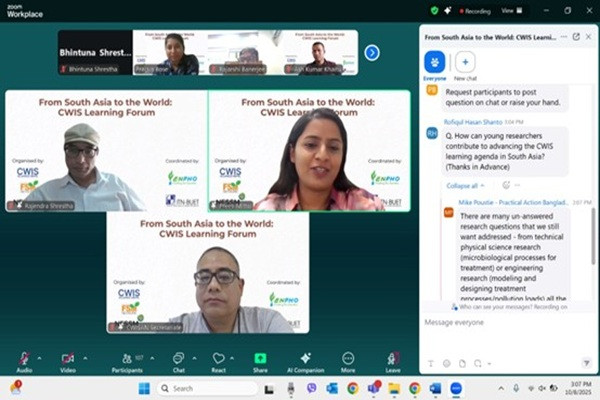
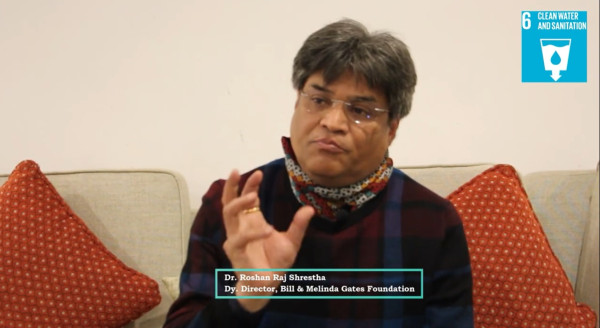
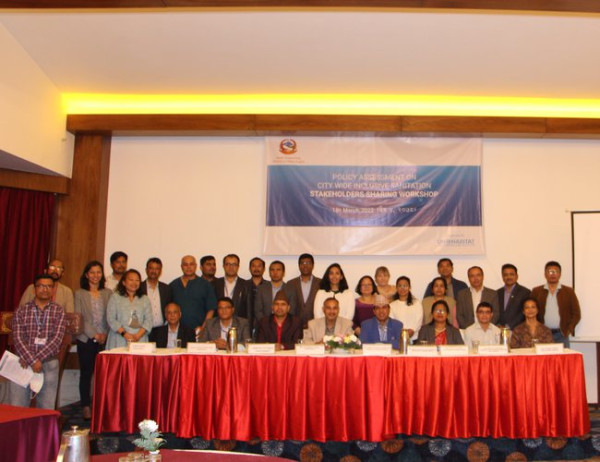
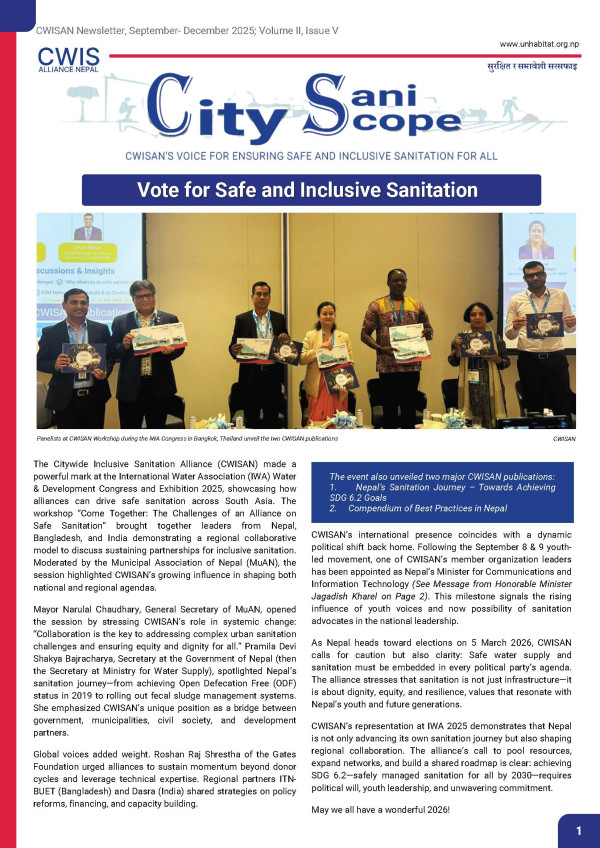
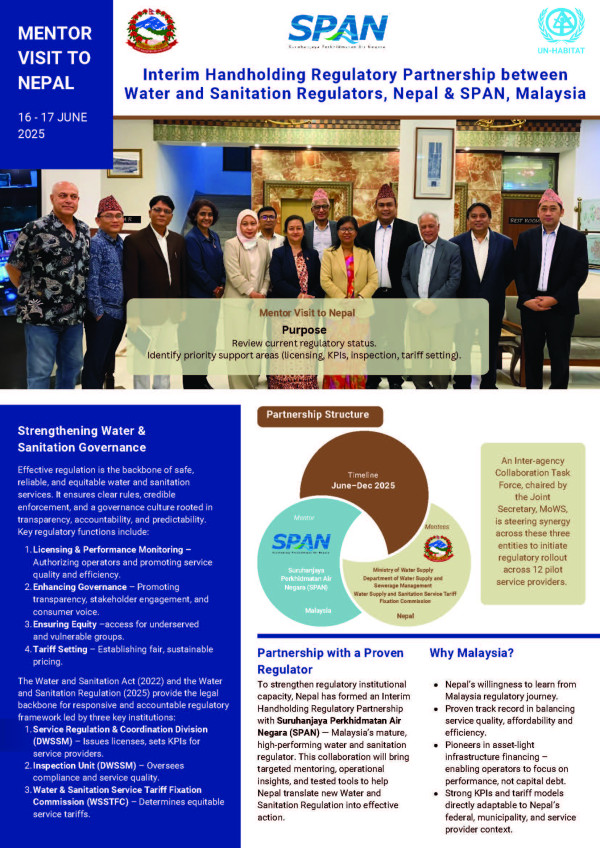
 - Final_page-0001.jpg)